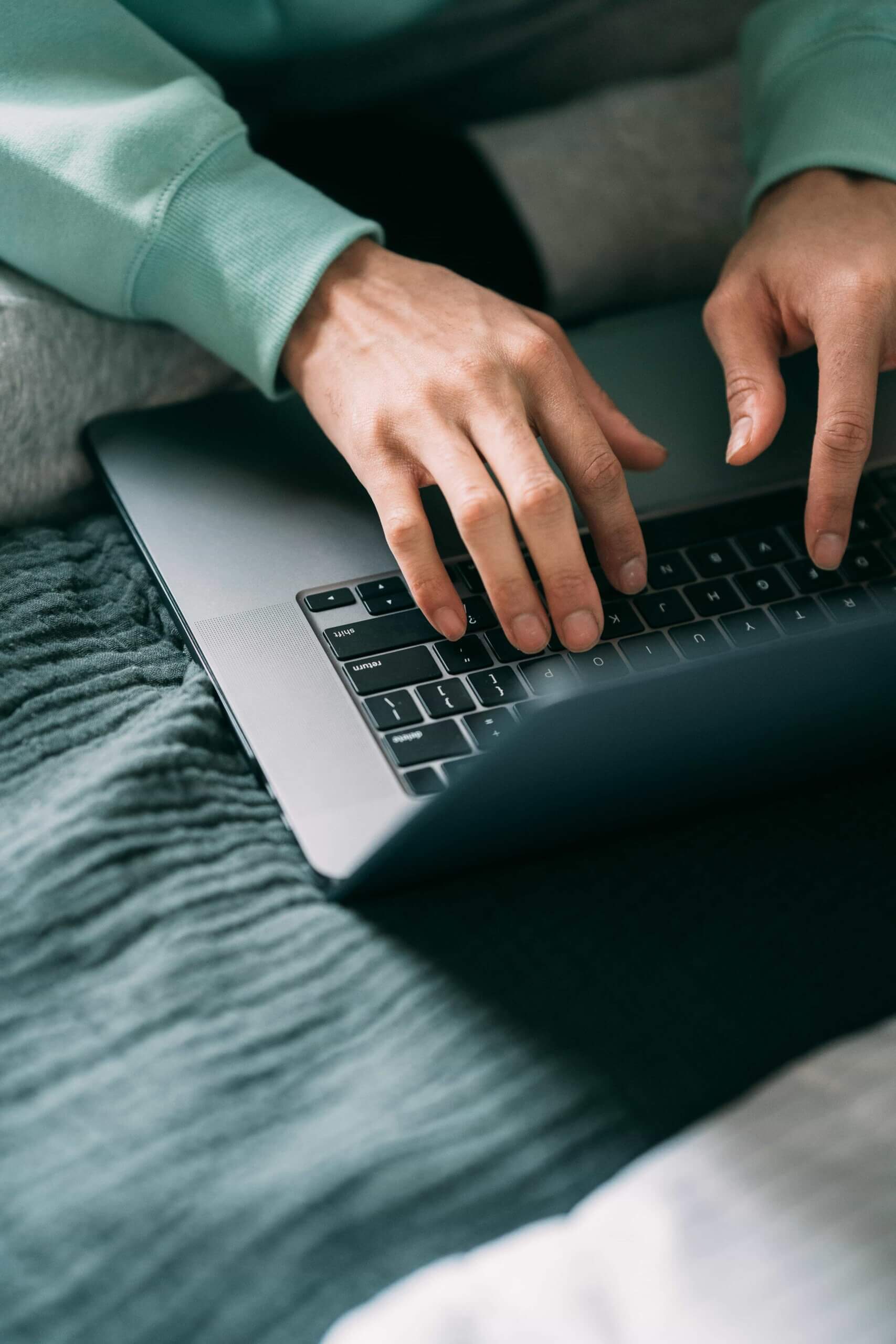
Use Secure and Reputable Sites and Platforms
Whether you’re doing research, online shopping or playing games, it’s essential to ensure that the websites and online platforms you’re using are safe and reliable. Getting into the habit of checking a website is secure is really important. This is a simple process, the search bar on most browsers can tell you if a website is secure of not. If you’re online shopping, try to only use trusted retailers. If you’re not sure, then take some time to do your research and check online reviews and social media to see if a shop is legit. For online gaming and gambling, you must only use sites that are fully licensed and regulated. That is essentially proof that the platform is legal.
It’s also important to take the time to read privacy policies or any terms and conditions a platform or website may have. A privacy policy will tell you exactly what a website is doing with your data. This means you’re aware of where your data is being shared. Additionally, terms and conditions can give you a more detailed insight into other aspects of a website such as payment processes. If you are playing in online casinos and claim a bonus or promotion, then the terms and conditions can also reveal any wagering requirements that come with these offers. Failing to read the terms and conditions in this instance could mean you fail to reach wagering requirements which could result in you having to deposit more money, or even lose out on winnings. Therefore, by being fully informed, you can protect yourself, your data and your finances at all times.
Protect your Personal Information
It’s up to you, it’s your responsibility when it comes to protecting your personal information online. Therefore, you need to be cautious with your information and know how to protect it. This means avoiding sharing any of your personal data unless absolutely necessary. If you are in online chatrooms or are regularly commenting in forums, it’s important to never share your personal information. Sometimes even the tiniest bit of information can be enough for a hacker to access your data.
It’s also important to know how to secure your online accounts. This means using strong and unique passwords. While it can be easy to lose track of different passwords, it’s important that you’re not using the same password for everything. This can put you at even more risk if someone gains access to your password. When setting up an account, always set up two or multi-factor authentication if you have the option to. This provides that extra layer of protection if someone does gain access to your passwords.
It’s also important to protect your financial information when making payments online. This means ensuring transaction pages are secure and use security technology such as SSL. You also need to make sure that you’re only ever using secure payment methods. If a website or platform only accepts methods that you’ve never heard of, this can be a red flag. Stick to what you know and what you’re comfortable with. Opting for methods such as digital wallet payments or a third-party payment systems such as PayPal can be a good way to protect your personal information as these methods of payment hide them from the merchant.
Being able to identify and avoid online scams is essential when it comes to protecting your personal information. Keeping up to date with the latest news in cyber security can help you to be more aware of any new scams. One of the more common scams to look out for currently is phishing attempts. This is where scammers and hackers will send emails or text messages and attempt to gain access to your personal information. What’s scary about this type of scam is that a lot of the time scammers pretend to be official websites, businesses and platforms such as the government, tax office and even your bank and can be extremely realistic. Therefore it’s important to be able to identify these attempts and report them straight away. If you ever receive any messages like this, it’s always a better idea to contact the company directly before providing your personal details. In this instance, it’s better to be safe than sorry.
Secure Your Devices and Networks
And finally, one of the best practices to adopt is knowing how to secure your devices and networks. One of the most effective ways to protect yourself is by simply making sure your devices such as your smartphone or tablet are always up to date. You also need to be cautious of any software you might be downloading onto your devices, computers and smartphones. When software hasn’t been updated in a while, hackers can find it much easier to gain access to your personal data. Investing in good quality and reputable anti-virus and internet security software means that you are fully equipped to protect your devices and data from any cyber threats.
However, it’s not just your devices you need to worry about. You also need to make sure your Wi-Fi networks are secure too. It’s essential that you change your default usernames and passwords to something stronger and more unique. Enabling WPA (Wi-Fi Protected Access) or WPA2 on your Wi-Fi network will encrypt data transmission and help to prevent any unauthorized access. When you’re out and about, try to avoid using public Wi-Fi networks, this can put you at more risk as they might be insecure and more susceptible to eavesdropping. If you must use these networks, then it’s really important to avoid accessing sensitive data such as online banking.
In summary, by adapting these best practices into your online routine, you can ensure a safer a more secure experience. Make sure to always keep up to date with the latest news and updates in cyber security to ensure you’re able to fully protect yourself at all times.
